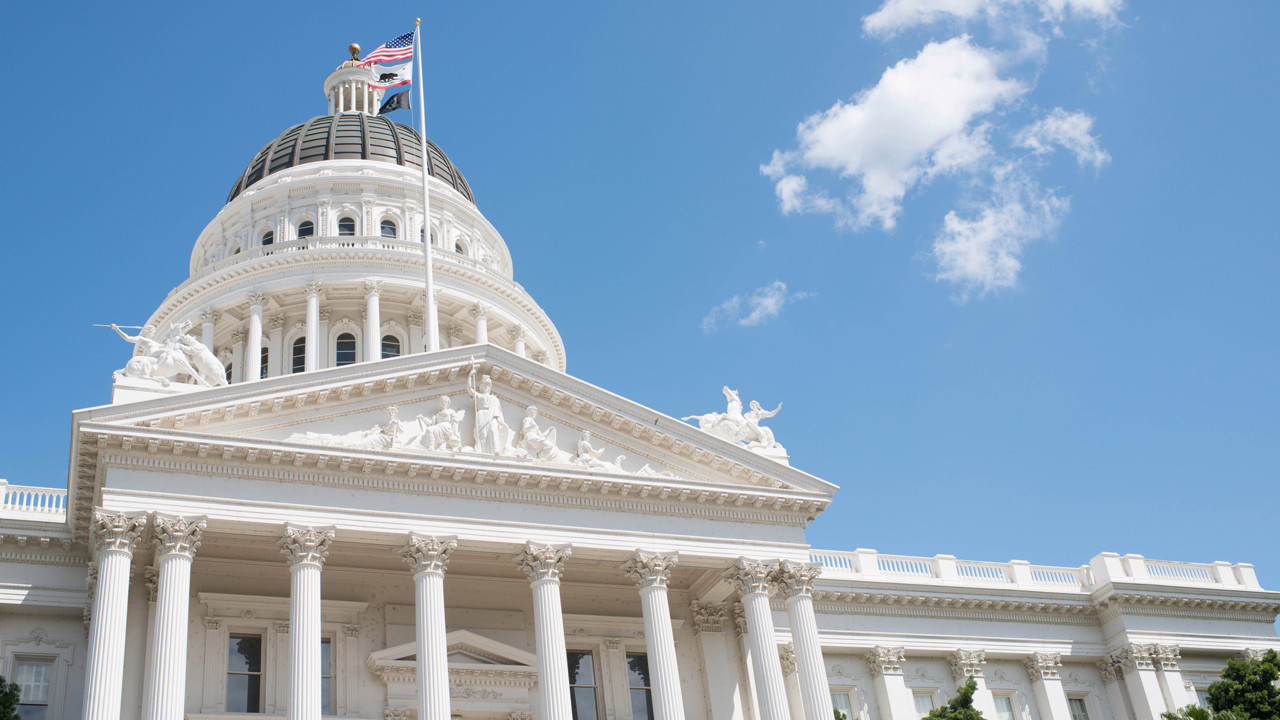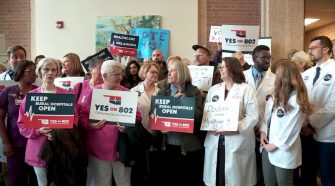SACRAMENTO, Calif. (AP) — In their first year with a new governor, California lawmakers passed legislation aimed at guarding against financial harm from wildfires, deterring fatal police shootings and expanding health care to young immigrants living in the country illegally.
That’s on top of efforts related to employment law, housing and requiring presidential candidates to release their tax returns. Many of the bills are being closely watched across the nation and could prompt other states to follow suit.
Democratic Gov. Gavin Newsom has signed many proposals but has until mid-October to act on the rest.
HEALTH CARE
Newsom’s first budget, signed in June, lets immigrants age 25 or under who are living in the country illegally sign up for Medicaid benefits if they meet income requirements. It also expanded subsidies for middle-income people to buy health care.
Separately, a proposal to crack down on fraudulent medical exemptions for childhood vaccines became one of the year’s most controversial bills. It gives the state new oversight over doctors that write more than five medical exemptions in a year and schools that have a vaccination rate of less than 95%. It will take effect Jan. 1.
CALIFORNIA VS. TRUMP
California Democrats are trying to force President Donald Trump to release his tax returns through a new law that requires presidential candidates to disclose theirs to be on the state’s primary ballot. Trump’s campaign and the state and national Republican parties have sued to block the law, and a hearing is set for Sept. 19.
Separately, lawmakers tried to thwart Trump’s roll back of environmental regulations. Lawmakers passed a bill late Friday to enshrine Obama-era environmental protections in state law. Opponents, including several major water districts, say it will create two separate sets of rules that will be difficult to navigate.
HOUSING
Landlords won’t be able to raise yearly rent prices by more than 5% plus the cost of inflation starting Jan. 1. California’s new law follows Oregon, which adopted a statewide rent cap recently, though Oregon’s is slightly higher. A previous law still bans local governments from adopting their own rent control policies, but the law is a major victory for renters who say they’re being priced out as California struggles to confront a housing crisis.
Landlords also won’t be allowed to evict someone without showing cause or refuse to rent to someone solely because they have a federal Section 8 housing voucher.
WILDFIRES
The bankruptcy of Pacific Gas & Electric and the financial toll of catastrophic wildfires was perhaps the most significant issue facing lawmakers this year. In July, Newsom signed a law that requires the state’s three investor-owned utilities to spend a combined $5 billion on safety improvements and adopt new safety standards.
It also sets up a $21 billion fund the companies and utility customers pay into that can be tapped to help pay victims of future wildfires.
POLICING
An emotional debate over how California should respond to deadly police shootings culminated in Newsom signing a law to change when police can open fire at suspects. He also signed a companion measure that beefs up officer training on how to handle confrontations.
California’s old standard was based on the doctrine of “reasonable fear,” meaning if prosecutors or jurors believed officers had a reason to fear for their safety, they could use lethal force. The new law will allow police to use deadly force only when “necessary” to defend against an imminent threat of death or serious injury to officers or bystanders. It does not define necessary.
COLLEGE ATHLETES
California lawmakers overwhelmingly voted to challenge the NCAA’s rules that say college athletes can’t make money from use of their names, images or likenesses. Newsom hasn’t said how he plans to act on the bill.
It wouldn’t take effect until 2023 if passed, giving the NCAA time to figure out whether it will change its rules or kick out powerhouse California schools such as UCLA, USC, Stanford and Cal.
FUTURE OF WORK
California also took a stand against companies in the so-called gig economy such as Uber and Lyft by passing legislation aimed at making them treat their workers like employees. The broad bill would make it harder for many industries to treat their workers like contractors rather than employees, who are entitled to minimum wage and some benefits. Newsom supports the bill but the gig companies are also hoping to keep negotiating for their own set of rules.
Uber has suggested it won’t comply come Jan. 1, instead defending its current model if it faces legal challenges. It’s also threatened, alongside Lyft and DoorDash, to spend $30 million on a ballot campaign next year.
HAIR DISCRIMINATION
California became the first state to ban workplace and school discrimination against black people for wearing hairstyles such as braids, twists and locks. The new law says hairstyles are associated with race and therefore protected against discrimination.
Democratic state Sen. Holly Mitchell and other backers say black people are unfairly discriminated against because white hairstyles are generally considered more professional.


















